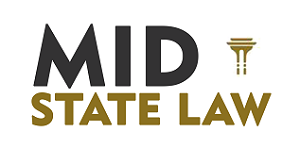The service of process, an integral aspect of legal proceedings, has experienced a profound evolution as it adapts to the digital era. This transformation extends beyond the conventional methods of physical document delivery, delving into the realm of technological innovations.
The influence of technology within legal contexts is a hallmark of modern times. Its impact has traversed traditional boundaries, introducing groundbreaking changes to the service of process. One such paradigm shift is the exploration of email delivery as a viable alternative, challenging established norms by infusing speed, efficiency, and accessibility into the process.
Traditional Approaches to Service of Process
Personal Service: Addressing Limitations
Among the tried-and-true methods of effecting service of process, personal service stands out as a time-honored approach that directly delivers legal documents to the intended recipient. While this method has been a cornerstone in legal proceedings for years, it encounters practical limitations that can impede its effectiveness. One of the primary challenges is the potential elusiveness or evasive tactics employed by individuals who may be avoiding the legal matter at hand. This can lead to delays, increased costs in legal proceedings, and frustration for all parties involved. The requirement for physical presence and direct interaction also poses logistical hurdles, especially when dealing with parties who are geographically distant or difficult to locate. As we navigate the digital age, it becomes clear that relying solely on personal service can result in inefficiencies and complications that call for reevaluating our delivery methods.
Substituted Service and Publication: Adaptation in a Digital Era
Another traditional avenue for service of process is substituted service and publication. When direct personal service proves challenging or unfeasible, this method provides an alternative means of ensuring that the recipient is made aware of legal proceedings. Substituted service involves leaving the legal documents with an individual of suitable age and discretion at the recipient’s residence or business. Publication entails placing notices in newspapers or other public forums to inform the recipient about the ongoing legal matter. While these approaches have served their purpose, they, too, face limitations, particularly in the current digitally driven landscape. The reliance on physical presence and printed materials contrast starkly with the increasing shift toward electronic communication and online interactions; in a world where digital channels are the norm, the effectiveness of substituted service and publication may be compromised, highlighting the need for modernization and adaptation in the realm of service of process.
If you want to learn top-tier document automation tips, read: The Tricks Smart Lawyers Are Using For Document Automation.
Email Delivery in Modern Legal Notices
Legality of Email Service
In today’s digital landscape, utilizing email for legal notifications has gained substantial recognition. Courts across jurisdictions acknowledge the legal validity of email as a means of service. This acknowledgment stems from the fact that email is a widely accepted form of communication, adhering to established protocols and authentication mechanisms. Consequently, it has become an efficient and accepted alternative for delivering legal notices.
Ensuring Notice and Acknowledgment via Email
The efficacy of email as a method of service lies not only in its legal recognition but also in its capacity to ensure notice and acknowledgment. Email platforms offer delivery and read receipt confirmations, enhancing transparency in the process. This feature is particularly valuable for legal proceedings, where proof of notice is pivotal.
Challenges in Email Service of Process
Ensuring Recipient Verification and Authentication
Ensuring the authenticity of recipients is a paramount concern in email service of process. Verifying the identity of individuals receiving legal documents is essential to maintain the integrity of the process. Robust authentication methods, such as two-factor authentication and digital signatures, play a pivotal role in confirming the legitimacy of recipients and preventing unauthorized access.
Safeguarding Privacy and Data Security
Addressing privacy and data security is of utmost importance when utilizing email for service of process. The digital transmission of sensitive legal documents raises concerns about unauthorized interception of data breaches. Implementing robust encryption protocols, secure file attachments, and adherence to industry-leading data protection standards are essential steps to safeguarding the privacy and security of both senders and recipients in the digital age.
Future Prospects and Ethical Implications
Technological Leap in Serving Process:
In the rapidly evolving digital landscape, technology’s role in the service of process has taken a transformative leap. Traditional methods have been complemented and, in some cases, replaced by electronic means, primarily email delivery. This shift brings efficiency to the forefront, streamlining the notification process and enabling quicker interactions between parties. However, as we embrace these advancements, we must navigate potential challenges to ensure reliability, security, and legal compliance.
Balancing Equity and Efficiency in Legal Notices
The efficiency gained from digital service of process is undeniable, but it must harmonize with the ethical principle of fairness. While email delivery expedites the dissemination of legal notices, we must tread carefully to avoid overlooking recipients who may not be technologically adept or may filter out unrecognized senders. This raises the question of ensuring a level playing field where everyone knows their legal responsibilities. Striking the right balance demands innovative solutions that uphold efficiency without compromising equity, reinforcing the importance of ethical considerations in the age of digital legal notification.
As the legal landscape evolves in the digital age, the viability of email delivery in the service of process emerges as a transformative force. Adapting to technological advancements is essential, but a delicate equilibrium between efficiency and fairness must be maintained to ensure equitable legal notifications.





